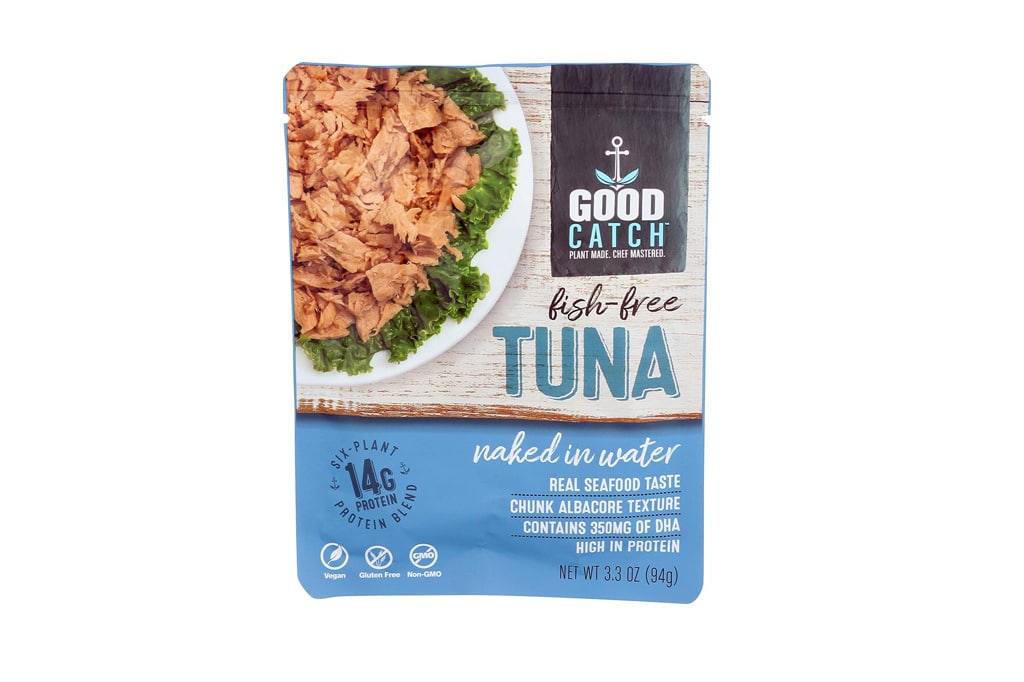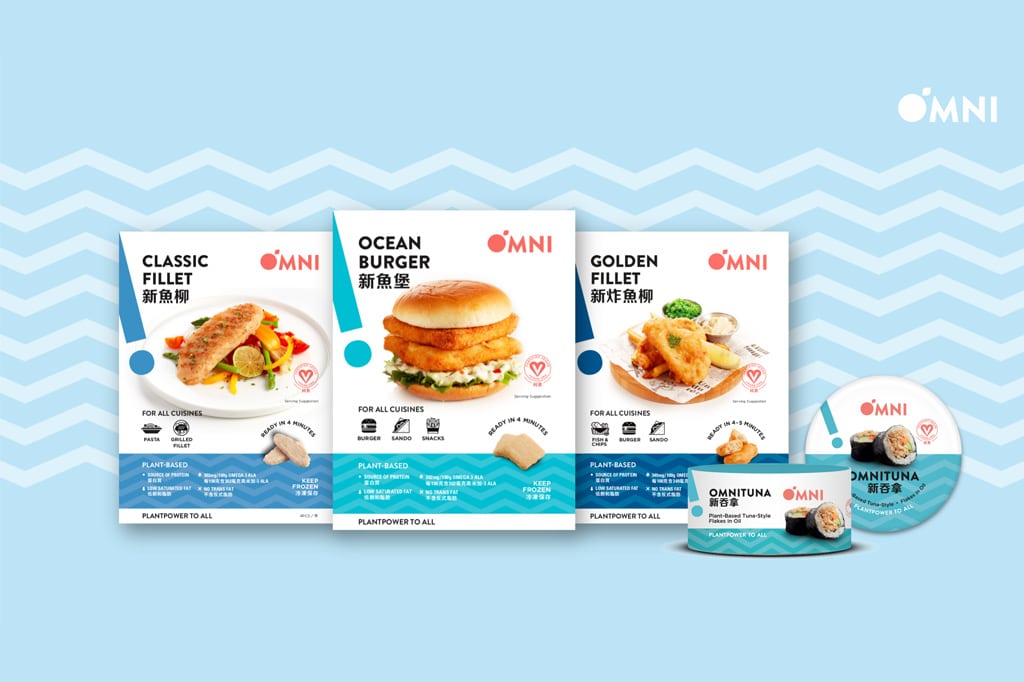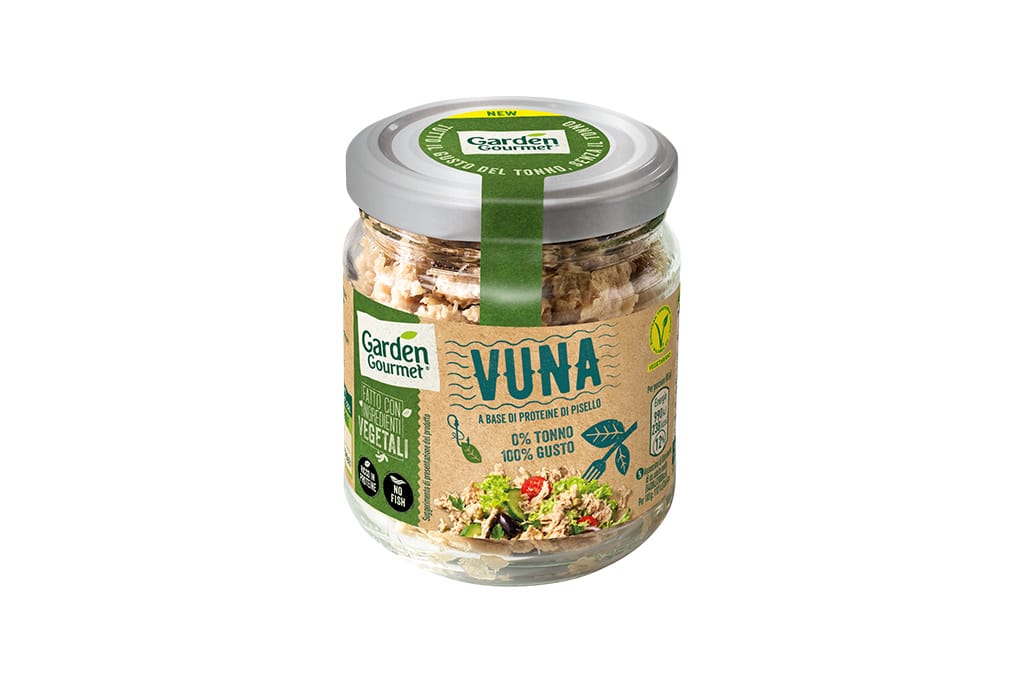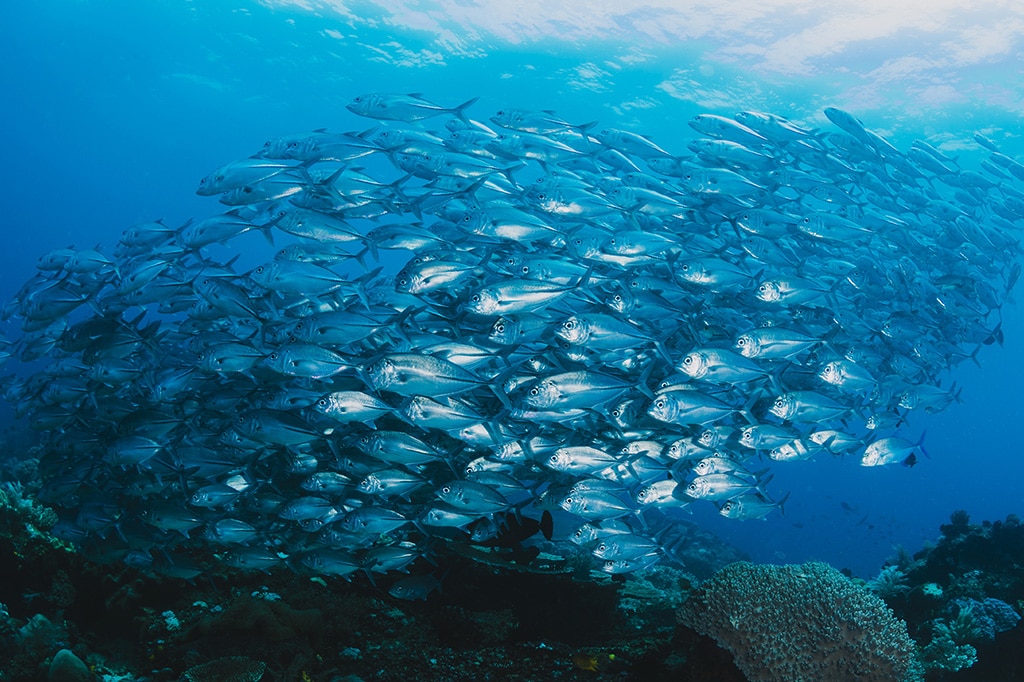In the first half of this year, faux seafood companies managed to raise USD 116 million in investment capital, according to the non-profit think tank Good Food Institute (GFI). This report explores the global alternative seafood industry’s commercial landscape, including investments, sales data, and consumer insights.
In the first six months of 2021, we saw record investments, more than USD 90 million in 2020. This year, investments came from 11 disclosed deals with alternative seafood brands such as Gathered Foods, BlueNalu, and New Wave Foods.
The industry report also shared retail sales data. In 2020, the retail plant-based food market in the US grew by 27 percent, and plant-based meat sales grew 45 percent, with USD 1.4 billion in total sales. In comparison, faux seafood retail sales in the US grew by 23 percent, from USD 10 million in 2019 to USD 12 million in 2020—though it remains a tiny portion (0.1 percent) of overall seafood sales, compared to plant-based meat at 1.4 percent of overall meat sales.

Understandably, burgers, plant-based chicken, and other meat alternatives dominate the market, GFI suggests that alternative seafood remains market whitespace and will poise to capitalize on the momentum created by the plant-based industry. Retail plant-based seafood sales could grow by $221 million if the category was able to capture the same share of the seafood market that plant-based meat has of the meat market. Because a large percentage (65 percent) of seafood sales in the US occur in food service, GFI suggests the total market opportunity is likely much greater.
The alternative seafood industry has grown significantly in recent years. By 2017 we had approximately 29 companies around the world making seafood by using processes and ingredients that include plants, microbes, fermentation, and cultured animal cells. By June 2021, that number increased to more than 87 companies.

In 2021, OmniFoods expanded into plant-based seafood. Previously known for their plant-based ground pork, OmniPork, the Hong-Kong-based company expanded its offerings to include six seafood products: two different fish fillets, an ocean burger, salmon, shelf-stable tuna, and crab cakes. The products are high in protein and omega-3 fatty acids, it will be tested first in selected Hong Kong restaurants before they’ll be distributed to retailers by the end of the year.
Other companies like Aqua Cultured Foods, which is developing the first whole-muscle seafood created by microbial fermentation; Odontella, which makes a structured salmon analog using seaweed and microalgae; and ENOUGH, which announced a prototype mycoprotein tuna steak produced via a 3D printer made by Natural Machines.

Larger food manufacturers, including traditional meat and seafood companies, started to seize opportunities in the emerging market to generate new revenue streams. Last year, Nestlé launched its first plant-based seafood product, Vuna, which is sold under its Garden Gourmet brand in Switzerland. And Cargill—one of the biggest meat producers in the world—introduced vegan scallops co-branded with Lawson, a Japan-based convenience store chain.








